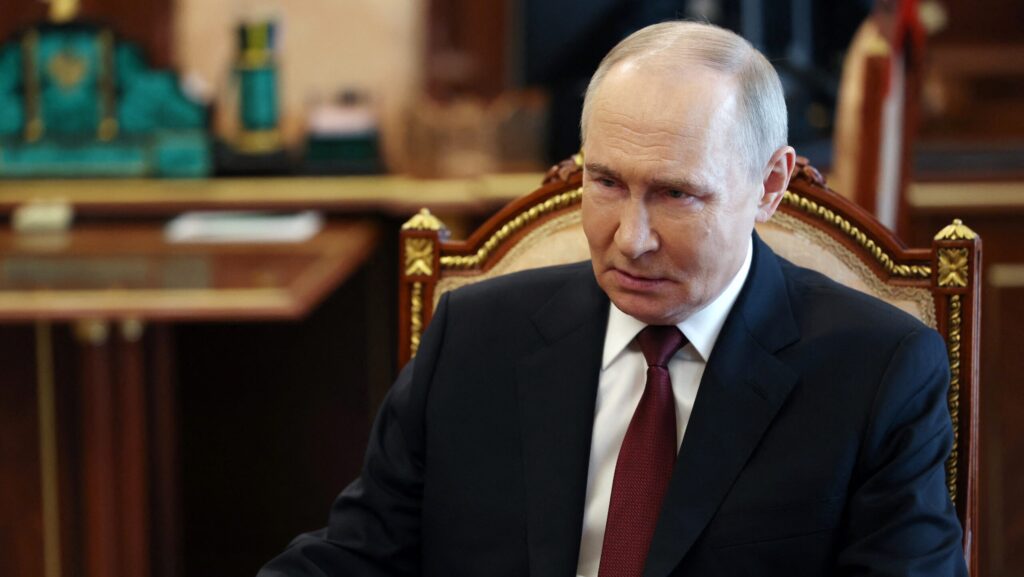The following is a translation of an article written by Ákos Bence Gát, a researcher at the Europe Strategy Institute of the University of Public Service, originally published on the Five Minutes Europe blog of Ludovika.hu.
Politics Could Lead to the Toughest Rule of Law Case
Hungary’s voting rights in the EU could be suspended if it does not vote in favour of a proposal to amend the EU’s multiannual budget to give Ukraine €50 billion in aid from the common European budget over the next five years. The Brussels-based news outlet POLITICO, citing high-profile diplomatic and EU institutional sources, has floated the possibility of unprecedented sanctions against Hungary in the EU.
The threat was made shortly before the European Council (EU Council) meeting on 1 February. In a few days, EU heads of state and government will make another attempt to agree on a budgetary amendment. The issue is back on the agenda of European leaders because Hungary did not give its consent at the 15–16 December 2023 EU Council meeting to a mid-term review of the EU’s seven-year budget, which would see Brussels collect billions more from Member States to continue its involvement in the Russia–Ukraine war.
Under the EU Treaties, decisions on the EU’s seven-year budget require the unanimous support of all Member States. This means that negotiations must continue until a solution is found that works for everyone. And if no agreement can be reached, no joint EU decision can be taken.
The same rule applies to the common foreign and security policies, where Member States have preserved their equality and sovereignty. Not without reason: how much each country pays into the EU budget and how taxpayers’ money is spent is one of the most important issues. It is thus understandable that Member States have not allowed others to decide over their heads on fundamental foreign and security policy issues such as involvement in a war.
The threat, as reported by POLITICO, means that some influential players in the EU would try to force a common decision by silencing one of the parties included in the negotiation, instead of negotiating with him. The idea would upend the EU Treaties and run counter to basic democratic principles and the rule of law.
Ironically, the only way to suspend the voting rights of a Member State within the European Union is through a single procedure, namely the rule of law procedure under Article 7(2). In other words, paradoxically,
it is precisely on the pretext of the rule of law that the rules of the Union would be mocked,
and the Union’s own rule of law violated.
Proceedings under this Article of the Treaty on European Union (TEU) may be launched at the initiative of one-third of the Member States or the European Commission. Under the procedure, the EU Council, acting unanimously, may find that the Member State concerned has committed a serious and persistent breach of the values of the European Union enshrined in Article 2 TEU, including the rule of law. In the procedure, the Member State concerned does not, of course, have a right to vote, so in practice, a unanimous decision by 26 Member States is required.
Subsequently, if an infringement of Article 2 TEU is found, the Council, composed of the ministers of the Member States, can decide by qualified majority to suspend the voting rights of the Member State under review. In concrete terms, the suspension of voting rights can already be achieved with the support of fewer Member States, but this stage can only be reached after an earlier unanimous decision at the highest level.
Hungary is currently subject to a rule of law procedure under Article 7(1) TEU, under which the Council can only identify a clear risk of a serious breach of EU values, not an actual breach of values.
No sanctions can be imposed in this procedure, nor can Hungary be deprived of its voting rights.
By adopting a gradual approach, the procedure under Article 7(1) is the less stringent one, whereas the procedure under Article 7(2) is much more drastic. There is, however, no overlap between the two procedures. That is, there is no transfer from the procedure under (1) to the procedure under (2). If someone wants to use the procedure under Article 7(2) against our country, they have to start it separately.
The EU has now floated the final sanction of the (2) procedure against Hungary while the EU has not even closed the (1) procedure since September 2018, i.e., for more than five years, meaning that even the risk of a breach of the EU values has not been established in Hungary’s case.
The Hungarian government has been saying from the beginning that under the heading of ‘rule of law’ procedures, there is in fact a political witch-hunt against Hungary. In other words, Hungary is being accused of violating the rule of law and EU values and is being subjected to all kinds of sanctions on the pretext that it is not slavishly implementing the political ideas of the Brussels elite and, where appropriate, is even the only one to speak out against them in public.
That the above statement is not just a political slogan has been shown by several signs, which has already been discussed in detail in previous Ludovika.hu articles. However, recent developments point even more clearly to the real political nature of the rule of law debate.
The EU elite is now openly threatening through the media that if Hungary does not vote for the latest EU budget and foreign policy ideas, its voting rights will be taken away under the rule of law procedure. In doing so,
Hungary’s critics overtly admit that the rule of law procedures are really about political pressure.
Hungary would not be subjected to the most drastic sanctions under the rule of law procedure because of rule of law issues, but specifically because of its dissenting views on certain budgetary and foreign and security policy issues.
This is a clear example of how if a country follows the guidelines of the political elite in Brussels, it is a ‘good Member State governed by the rule of law’, but if it has a different vision from the EU elite, it is seen to violate the rule of law.
As a matter of fact, the rule of law procedures in Brussels no longer contain any trace of the rule of law itself. It would be timely to initiate a change of terminology, introducing a new term, ‘EU arbitrary procedures’ as the rule of law procedures have apparently been reduced to an instrument of political arbitrariness and power politics in Brussels.
Click here to read the original article.








